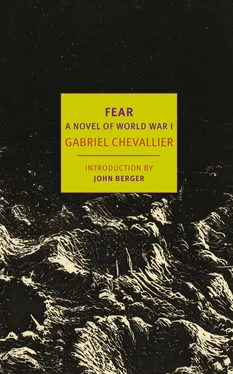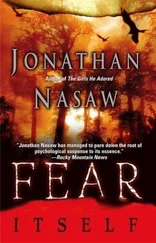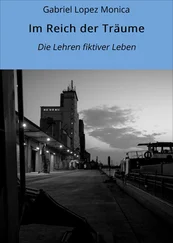‘But what are we risking?’
‘Everything! We’ve never risked so much, we risk catching the last shell. We’re still at the mercy of an artilleryman in a bad mood, a barbarian fanatic, a mad nationalist. You don’t by chance believe that the war has killed all the halfwits? They belong to a race that will never die out. I’m sure there was a halfwit in Noah’s Ark and he was the most prolific male on God’s blessed raft! Keep your head down, I tell you… Cheerio! We’ll see each other again in peacetime.’
He hurries off, vanishing into the morning mist.
‘At the end of the day, he’s right,’ said the spotter.
‘Then stay here with me. There’s not much danger here.’
He lay down on Nègre’s bunk. No sounds of war disturbed the morning. We lit cigarettes, and we waited.
Eleven o’clock.
Total silence. Total astonishment.
And then a murmur rose up from the valley, answered by another from the front. A great outburst of shouting, echoing through the naves of the forest. It seemed that the whole earth was exhaling one long sigh. And that an enormous weight was falling from our shoulders. We cast off the hair shirts of anguish that mortify our chests: we are finally saved.
It is a moment that brings us back to 1914. Life rises up again like the dawn. The future opens before us like a magnificent avenue. But it is an avenue bordered by tombs and cypresses. A bitter taste mars our joy, and our youth has greatly aged.
The only goal offered to us through all these years of war was the horizon, crowned with explosions. But we knew we could never reach that goal. Gorged on the living and the dead, the soft earth seemed accursed. Young men, from the land of Balzac and the land of Goethe, whether they were taken from universities, workshops or the fields, were provided with daggers, revolvers and bayonets, and were pitched against each other, to butcher and maim in the name of an ideal which we were promised would be used wisely and well by those at the rear.
At twenty we were on the bleak battlefields of modern warfare, a factory for the mass production of corpses, where all that is asked of the combatant is that he is a unit of the immense and obscure number who do their duty and take the shells and the bullets, a single unit in the multitude that they destroyed, patiently and pointlessly, at a rate of one ton of steel per pound of young flesh.
Through all these years, when they had broken our spirits, and though we no longer had any conviction to drive us on, they sought to make us into heroes. But we saw only too well that hero meant victim. Through all these years, they demanded from us, hour after hour, the total acquiescence that no moral strength could allow us to repeat continually. Certainly many had consented to die, once or ten times over, resolutely, to have done with it all. But every time that we kept our lives, having made a gift of them, we were pursued even harder than before.
Through all these years, they forced us to gaze on the rotting, dismembered corpses of those who had been our brothers, and we could not stop ourselves thinking that these were the images of what we would be the next day. Through all these years, while we were young, healthy, and full of hopes that tortured us by their tenacity, they kept us in a kind of final agony, like a death watch for our youth. Because for us, the ones still alive today, the survivors, the moment that precedes pain and death, more terrible than pain and death, has already lasted for years…
And peace comes suddenly — like a burst of gunfire. Like a stroke of good fortune for a poor, exhausted man. Peace: a bed, meals, quiet nights, plans that we have still not had the time to form… Peace: this silence that has fallen over the lines, and fills the sky, and spreads across the whole earth, the great silence of a funeral… I think of the others, those in Artois, and the Vosges, and the Aisne, and Champagne, of our age, whose names we have already forgotten…
‘It feels really funny, doesn’t it?’ says a soldier passing by.
Our new colonel has just been told that the Germans are abandoning their lines and coming to meet us. He answers: ‘Give the order that they must not be allowed to approach. Open fire if necessary!’ He seems furious. A secretary explains: ‘He was waiting to get his general’s stars.’ He must find our joy deeply offensive.
Then we decide that we too should go down to Saint-Amarin to celebrate the armistice. We will return this evening. We doubt that the intelligence section has any more intelligence to receive or to give. Since eleven o’clock we are no longer soldiers but civilians held against our will.
We stroll down the paths joking merrily.
Vououou… We throw ourselves to the ground, up against the tree trunks. But instead of an explosion, we hear a roar of laughter.
‘Bloody fool!’
The man who had imitated the whistle of a shell answers:
‘You’re not used to peace yet!’
It is true. We are not used to not being afraid.
Down in Saint-Amarin, everyone is drinking, shouting and singing. Women are smiling, and getting cheers and kisses.
I know the café where we will find Nègre, and we head straight for it. He is indeed there, and it’s evident that he’s already slightly drunk. He climbs up on the table, knocking over glasses and bottles, and, to welcome us, points to the crowd of soldiers with a grand gesture:
‘And on the 1,561st day of the fight-to-the-end era, they rose from the dead, covered in lice and glory!’
‘Bravo, Nègre!’
‘Soldiers, I congratulate you, you have attained your objective: Escape.’
‘Long live Escape!’
Nègre comes down from the table, warmly embraces us, finds us seats at his table and calls the landlord:
‘Hey there, good Alsatian, wine for these thirsty victors!’
I shout above all the noise:
‘Nègre, what does Poculotte think of the events?’
‘A good question! You know I saw him? At eleven o’clock on the dot I announced myself at his residence. I’ve waited five years for that moment. “Is there something you want, sergeant?” he says, arrogant as ever. But I soon sorted him out: “My dear general, I have come to inform you that as of now we are dispensing with your services and leaving it to Providence to take care of filling the cemeteries. We further inform you that during the rest of our lives we would never like to hear any more of you or your estimable colleagues. We wish to be left in fucking peace. Peace! General, you are dismissed!”’
Six months later our regiment is marching through the suburbs of Saarbrücken, where the poilus have been wreaking romantic havoc. They have naturally been exploiting their success with the last of their energy.
On the low balcony of a little house, a pregnant woman, whose appearance and complexion reveal her nationality, gives us a rather daft smile, points to her belly, and, with amicable shamelessness, calls out:
‘ Bedit Franzose! ’
‘Don’t you think,’ says a soldier, ‘that they’ve been feeding us a lot of nonsense with all that stuff about “race hatred”?’
1 Author’s note: I have discussed this in another book: Le Petit Général.
2 Author’s note: ‘The courage, the recklessness, call it what you will, is the flash, the instant of sublimation; then flick! The old darkness again…’ William Faulkner, ‘All the Dead Pilots’, 1931.
3 The ‘raging little Borgia’ was Joseph Caillaux, former prime minister and more recently minister of finance, a Radical and pacifist. During his brief spell as prime minister he had averted war with Germany during the Agadir Crisis of 1911. His wife, Henriette, had shot dead the editor of Le Figaro , Gaston Calmette, after he had accused Joseph Caillaux of partiality in office, and had threatened to publish some potentially scandalous correspondence between Caillaux and his wife (who had at the time been his mistress). The trial of Madame Caillaux was the most sensational in France for many years, and ended with her acquittal thanks to the oratory of her lawyer, Labori. ‘Caillot’ — pronounced the same as Caillaux — ‘de sang’ is French for blood clot.
Читать дальше












